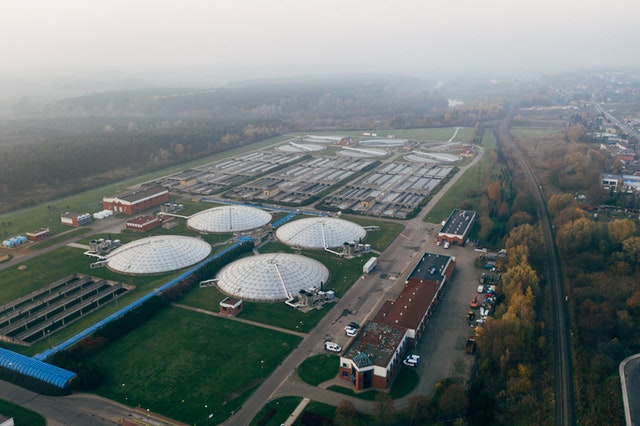Going green may boost your business’ bottom line.
Have a glimpse at the business world in 2021, whether brick-and-mortar facilities or online organisations, and you’ll immediately notice a wide divergence in the amount of effort poured into eco-friendly initiatives. The business sector is under pressure to stay ahead of the changing number of economic and social trends and problems. The urge to adopt and manufacture sustainable products and technologies to save the planet isn’t new, but it has never been more urgent than nowadays.
Businesses from all industries are developing innovative solutions to build an eco-friendly future. While some take this road to boost their performance and lower the harm to the planet, many do it to gain customer support.

Businesses are the worst polluters worldwide. The industrial sector produces 50% of the total air pollution (and the percentage doesn’t include the damage done to the environment through landfills and polluted streams.) Non-sustainable brands struggle with customer loss, business inefficiency and high operating costs because they use excess resources and energy.
Going green is an excellent decision in the present scenario. Here are 6 smart solutions for eco-friendly brands.
1. Install solar panels
The best way to control the amount of energy you use is to install solar panels. The latest models of high-tech panels use sun rays to generate electricity to power your business facility and equipment. Depending on how many solar panels you install, they may not produce enough energy to sustain your operations fully. Still, they can lower the reliance on third-party providers, especially in a time of peak demand when the prices are relatively high.
2. Rely on software
You must go paperless to reduce the amount of resources you use. Almost all your business processes can be handled with the help of software. Go through the processes that produce paper waste and look for ways to remove and replace them with eco-friendly solutions. Software tools can be the solution to go paperless because they complete many tasks (from online sales to billing). For example, if you use a tool with accounting functions, you no longer need paper statements. And where do you count that it also lowers the probability of errors?
3. Recycle e-waste
As tech advances and you adopt more technologies, you produce a lot of electronic waste or e-waste. Old equipment and devices you no longer use or want are e-waste you need to handle carefully. Electronics waste is quickly growing worldwide because many users (individuals and organisations) don’t dispose of their devices properly, and they end up in landfills. The global e-waste of monitors and screens has reached 6.7m mt. The emissions from the devices stored in landfills release emissions when the handlers burn, dismantle, or shred them. These emotions are harmful to human health.
You can recycle e-waste by training your staff to dispose of the unwasted electronics in proper e-waste locations. Additionally, considering the environmental and cost benefits, refurbished all-in-one computers can be a practical choice for individuals and organizations. You can also collaborate with associations that recycle and distribute the devices you no longer use to people who need them. Some organisations restore old devices and donate them to people who need financial assistance.
4. Lower the amount of waste you produce
Lower the amount of waste you produce
This is a key goal for a demand response business. Before adopting other smart solutions, look for ways to reduce the waste you produce. Start by reducing the reliance on inefficient products and the use of traditional energy sources. If your devices rely on oil use to function, cover the floors with a base layer like the track mat from Ecospill that acts like an oil-absorbent barrier. The industry sector relies on these mats to prevent their machinery and vehicles from spilling oil on the floors and producing hazardous waste.
For businesses looking to systematically address these goals, leveraging tools like a nonprofit strategy toolkit can provide a structured approach to developing sustainable practices. This toolkit is particularly valuable for organizations aiming to reduce waste while maximizing impact.
Create a reduce, recycle, reuse program to cut down the use of plastic items and energy. Maybe some old devices can be used for spare parts to repair the functional ones. Recycling should be the last step you take when you cannot find a way to reuse a product; dispose of it properly.
5. Green web hosting
Even if tech solutions are more eco-friendly than traditional operations, the Internet puts a significant strain on the environment. Lately, sustainability supporters have been calling on internet providers to use alternative energy sources to power their data centres. Google and Facebook were the pioneers in this initiative because they committed to switching from traditional energy to solar, wind, and geothermal energy.
You can join the initiative if you choose green web hosting from a provider that uses a renewable energy source. You can find several reliable web hosting solutions on the market that can help your business reduce its carbon footprint. Also, when the web hosting service uses an alternative energy source, it guarantees that your website is running at all times without impacting the environment.
6. Source supplies from local vendors
Your business performs better when you buy supplies from local vendors. You support the local economy and community and stop tons of carbon emissions from entering the atmosphere because the goods require no shipping. Also, when you collaborate with local partners, you can better control the goods’ quality because you can visit their headquarters to check the manufacturing process and ask the supplier to customise the products to match your needs. It’s easier to collaborate with local vendors because face-to-face conversations remove communication barriers.
When you choose vendors to check if they apply green practices as well. You want to associate your business with companies known for the low impact they have on the environment and effort they take to stay eco-friendly.
Final thoughts
Making the above changes saves money, builds brand awareness, grows the customer base, and advertises your business as an eco-friendly one. Depending on your company’s specific, you may or may not be able to integrate all these smart solutions into your operations, but this article serves you only as a starting point. You can get in touch with your local business association to find out what programs they have in place for supporting businesses to make sustainable upgrades. Some local governments offer cash rebates for companies that use alternative energy sources and recycle their waste.



